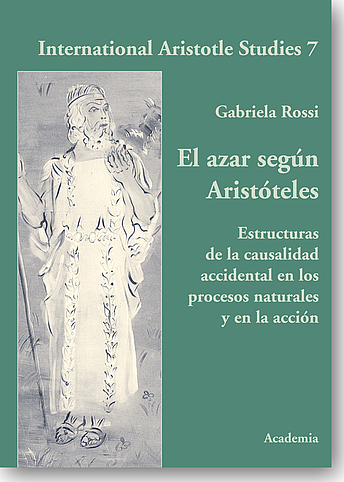Rossi
El azar según Aristóteles
ISBN 978-3-89665-510-3
englischThe work presented here delves into Aristotle's theory of chance in Phys. II 4-6, a text found within the discussion about the principles and causes of natural philosophy. Always having this context in view, the author offers an interpretation of the generic definition of chance as a certain kind of accidental causal relation, and shows later how both species of chance distinguished by Aristotle in Phys. II 6 (týche and autómaton) share that common structure.
On this reading, it becomes relevant to clarify at the same time the specific mode that this kind of causality adopts in nature and in human agency.
Beyond pure exegetical questions, the book considers that the account of chance in Phys. II 4-6 bears philosophical interest, for Aristotle sets out to explain chance taking it as an irreducible phenomenon whose conditions of possibility tries to clarify, rather than taking it as a deceptive appearance which should be eliminated by philosophical reflection. To that extent, Aristotle's account of luck (týche) is shown to be worth considering, even today, as a genuine philosophical alternative to eliminative accounts of this phenomenon.
Este libro examina la teoría del azar de Aristóteles, presentada en Phys. II 4-6, en el contexto de la discusión de los principios y causas de la filosofía natural. Teniendo siempre en vista este contexto, la autora elabora una interpretación de la definición genérica de azar como un cierto tipo de relación causal accidental, mostrando posteriormente cómo las dos especies de azar que distingue Aristóteles en Phys. II 6 (týche y autómaton) comparten dicha estructura común.


